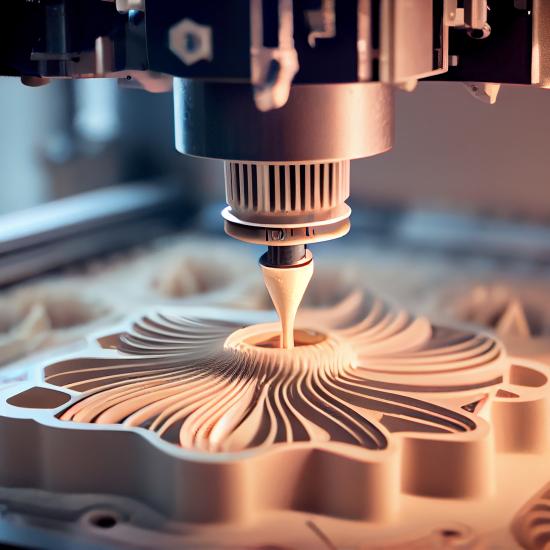As a manufacturer of aerospace parts, Sonaca is continuously searching for methods to reduce the weight of their products, either by materials selection or production technology.
Sonaca – a Belgian group – develops, manufactures and assembles advanced structures for the civil and military aerospace markets. As a Tier 1 supplier of aircraft parts for renowned manufacturers such as Airbus, Boeing, Dassault, Embraer, Bombardier, Pilatus and Gulfstream, Sonaca (Société Nationale de Construction Aérospatiale) is specialised in movable wing parts. Sonaca also supplies elements for the aircraft fuselage for a few companies and is active in the construction of aerospace structures. Staying abreast of new production technology is therefore essential.
Sonaca applies traditional methods to manufacture parts and structures for aircraft and satellites, but certain materials such as titanium alloys are more complex to process. The assembly of the various components takes time and the assembled structures are heavy. Additive manufacturing proved to be a strategic technology for future developments. Sonaca approached Sirris to look into whether this technology could be used to optimise the weight and functionality of the metal parts. Topological optimisation combined with additive manufacturing created new opportunities for weight reduction in an industry where weight is a critical aspect.
Three case studies
Sonaca wanted to know whether additive manufacturing technology could be used to optimise and produce complex parts more easily. Sonaca looked for various partners and launched the FASAMA (Fabrication Additive de Structures Aéronautiques Métalliques Avancées – additive manufacturing of advanced metal aerospace structures) project, with the support of the Walloon Region and as part of the European Commission’s Marshall Plan 4.0.
The objective of FASAMA, which started in 2015, is to develop three cases submitted to the partners by Sonaca. The first of these was a structural aerospace part in titanium used to de-ice the slats, the second a titanium structural part for the space industry, while the third was an experimental study of a complete slat in aluminium. Sirris provided support in the development of the optimisation software, in the design of parts, and in the transfer of process know-how to the partners. Sirris was also responsible for building up the process know-how by working with universities to research the properties of the materials, and for the production of each case to ensure Sonaca could test whether the parts resulting from the first two cases met its requirements.
The first two cases passed the tests and met Sonaca’s expectations. The last case resulted in a demonstrator, which proved the aluminium part could be manufactured successfully. The FASAMA project was completed successfully at the end of 2019.



